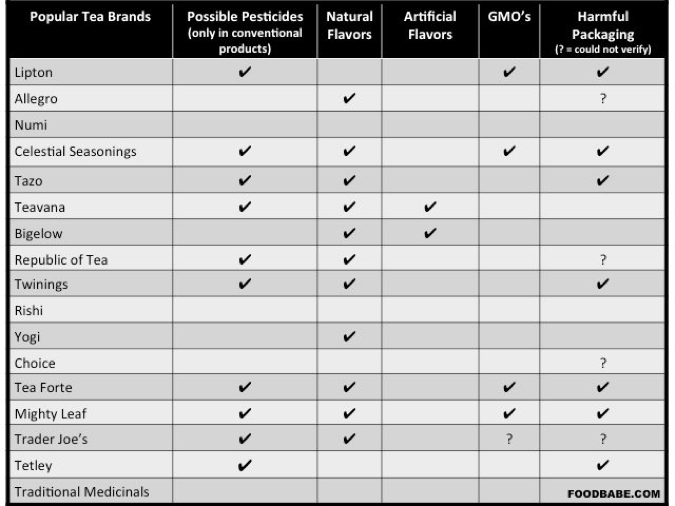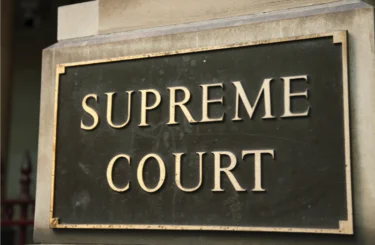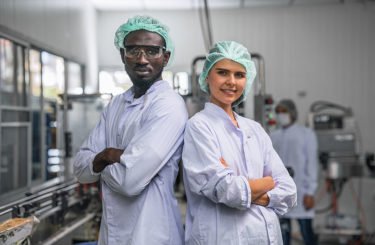
That Cup of “All Natural” Tea You’re Drinking May Contain Unnatural Pesticides
It’s no secret that some tea manufacturers use pesticides when growing tea leaves that are later packaged and sold to consumers like you and me. But it’s been reported that many of those companies neglect to wash the pesticides off of the tea before it reaches store shelves and fail to disclose the presence of those chemicals on product labels.
Results of recent testing reveal that certain popular tea brands – names we all know – contain pesticides:

While it may be true that certain tea products marketed as “natural,” “all natural,” and “100% natural” contain organic pesticides, these chemicals – along with man-made pesticides – are nevertheless potentially toxic chemicals that the majority of consumers simply don’t know they are drinking.
It happens like this. When a tea manufacturer purposely or negligently fails to wash pesticides off of the leaves, the consumer essentially does it herself when making a cup of tea. The chemicals are released into the hot water and ingested into the body with each sip. All without warning!
Big-name brands Celestial Seasonings and Teavana are two of the worst offenders. According to tests conducted by Eurofins and published by Glaucus Research Group:
- 91% of the Celestial Seasonings’ teas that were tested and 100% of the Teavana samples contained traces of known or possible human carcinogens as classified by the Environmental Protection Agency, and are subject to regulatory action and seizure by government officials.
- One of Teavana’s most popular and expensive teas, Monkey Picked Oolong, was the most contaminated with 23 pesticides.
- A sample of Celestial Seasonings’ Sleepytime Kids Goodnight Grape Herbal Tea – a product intended for children – contained 0.26 ppm of Propachlor, a known carcinogen for which there is no “safe harbor limit” under California’s Proposition 65 law.
- Contrary to Teavana’s representations in U.S. Securities & Exchange Commission filings, 77% of its tea samples failed European Union pesticide import standards for dry teas, meaning that such teas would be banned from sale to consumers in Europe.
- 62% of teas tested showed traces of the pesticide Endosulfan, which has been banned by the United States, China, the EU, and 144 other countries because of the risk of infertility and harm to unborn children and agricultural workers.
The attorneys in Sommers Schwartz’s Complex Litigation Group are investigating complaints of false advertising and deceptive sales practices by tea manufacturers. If you have purchased tea products, we encourage you to please take a moment and look at the box or read the teabag label for any claims that they are “all natural” or “100% natural” – those companies may be using language that conceals the presence of harmful chemicals.
We would appreciate speaking to anyone who has purchased any of the tea brands listed above – please contact us today at 877-775-0108 or using the form below !
[contact-form-7 id=”2392″ title=”Class Action Contact Form”]
Rod Johnston
Rod Johnston is a member of the Complex Litigation Group, participating in the firm’s direct and class action litigation on behalf of those harmed as a result of wage and overtime violations and consumer fraud.





